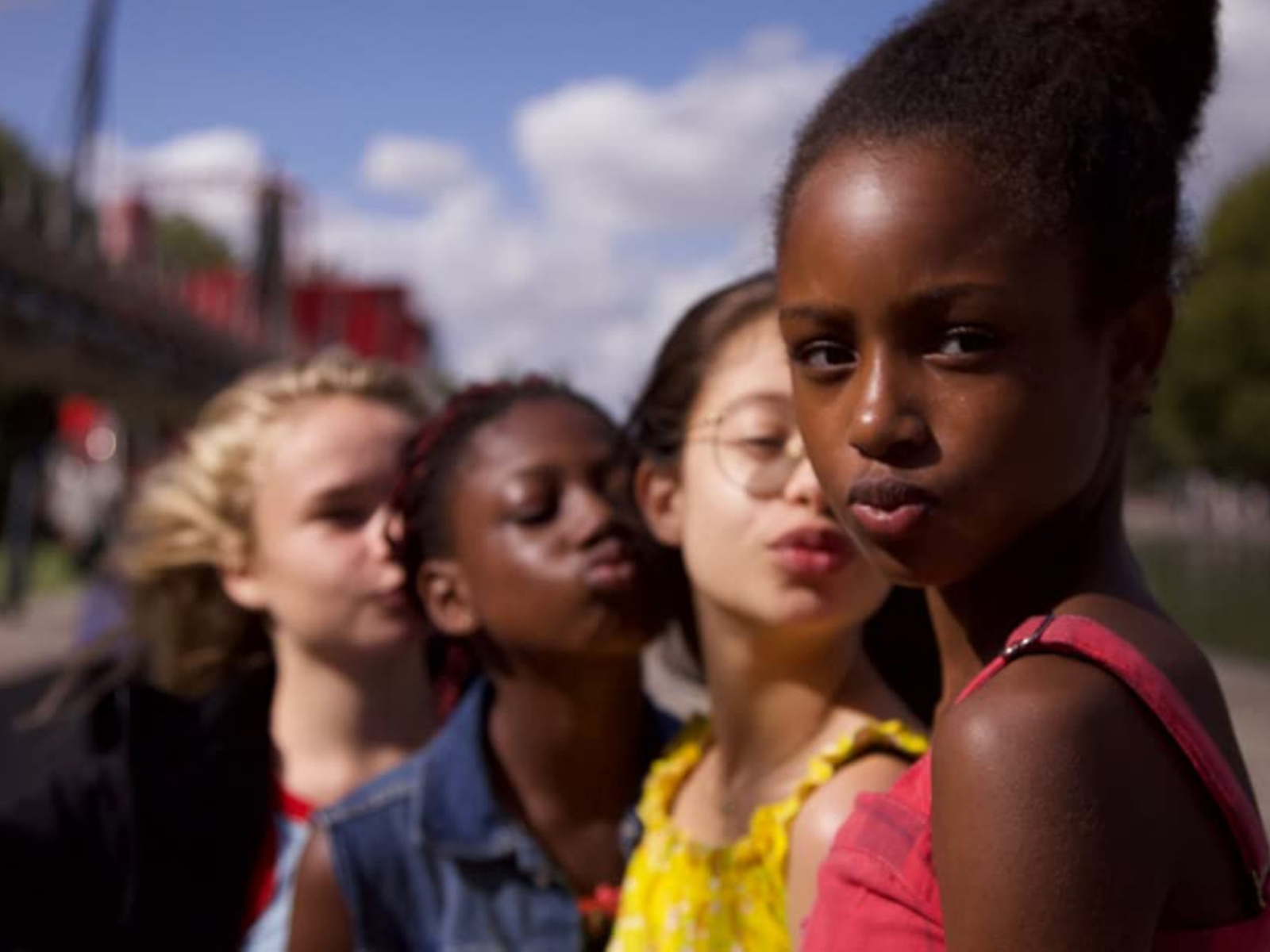
- Golden Globe Awards
Cuties (France)
Dressed in revealing halter tops and micro shorts, they love to twerk, shaking their bodies to suggestive choreographies copied from Tik Tok and YouTube. Meet the eponymous “cuties”. Four sassy preteen girls who just want to have fun and be noticed, especially on social media, the more provocative the better, as they train for a dance competition. To their schoolmate Amy (newcomer Fathia Youssouf), who has just joined the clique, they represent ideal role models, an escape for the eleven-year-old who feels trapped in her conservative and devoutly Muslim household, newly emigrated to Paris from Senegal. Caught between two cultures, in search of her identity, the young girl tries to juggle the traditional values taught by her mother at home and the elusive freedom and emancipation she so longs for, not realizing the toxic consequences it entails.
Cuties, Maïmouna Doucouré’s first feature film, following her 2015 short Maman(s), is an unflinching look at modern girlhood for which the self-taught 35-year-old filmmaker won the Directing Award in the World Cinema Dramatic competition at the last Sundance Film Festival.
“I wanted to make a film in the hope of starting a conversation about the sexualization of children,” she explains. “I felt this urgency after researching for a year and a half, interviewing hundreds of young girls, gathering their stories and experiences to feed my screenplay. I saw how difficult it is for them to find themselves and create who they want to be in a world where social media is so prevalent. They see that the sexier a woman appears on Instagram or Twitter, the more likes she gets. So, often, they try to imitate that pattern of extrovert sexuality in the belief it would make them more popular. They construct their self-esteem based on the number of followers they have on social media which gives them a false sense of empowerment. They have no concept of being objectified or that they project the image of sexual availability. To see these youngsters put so much pressure on themselves that way so early is heartbreaking.”
Doucouré felt it important not to judge her characters she portrays in the film. “But, rather, to understand them, to listen to them, to give them a voice, to take into account the complexity of what they are living through in society, and put that in parallel with their childhood, their (imagination), their innocence. These little girls, not yet adolescents, let alone adults, are very self-conscious and searching for themselves.”
She admits that part of this coming of age story is partly autobiographical and “a way to go through a type of therapy for myself.” She grew up in Paris with Senegalese Muslim parents like Amy. Her father was a garbage collector and he had two wives, so she was raised in a polygamous family with nine siblings. “The question of having two cultures, how to become a woman, haunted me for a long time. That is how I decided to embrace them both and have that become my strength. And that is what I really wanted Amy to take away at the end of the film: that she could go beyond both cultures to create who she wants to become. And hopefully, free herself.”

